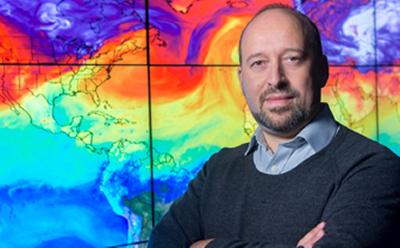Director of NASA GISS, Gavin Schmidt asks, “What is climate science good for”?

2016 was the warmest year in the instrumental record and possibly for many centuries. Surface temperatures have warmed by one degree Celsius since the 'pre-industrial’ period at a rate that is faster than any seen in the last 10,000 years.
Based on all the available evidence, scientists have concluded that the combustion of coal, oil, and gas along with changes in the land surface are largely responsible for this global warming. This understanding is the result of measurements conducted over a vast range of scales: from individual observations of snowfall to data collected by satellites that monitor sea levels to the development of models that can simulate all the important processes in the climate system. Scientists have drawn these wide ranging data together to produce testable theories that have been evaluated and predictions which have been borne out.
Dr Gavin Schmidt, Director of the NASA Goddard Institute for Space Studies, will visit the University of Southampton this month to participate in a number of meetings and events that focus on the science of climate change. Hosted by Geography and Environment’s Professor James Dyke, Dr Schmidt will also deliver a public lecture entitled “What is climate science good for?” on Thursday 12th January in which he will argue that despite increased certainty that humans are responsible for recent global warming, avoiding the worst impacts requires a much deeper connection between policy-making and science. To paraphrase Sherwood Rowling, what good is climate science, if all we are going to do is wait around for its predictions to come true?
Dr Schmidt's lecture launches a series of events that will showcase the University of Southampton's teaching, research and engagement on climate change and sustainability science. You can watch the lecture live from 7pm on Thursday 12th January via this link on Livestream
Biography: Dr Gavin Schmidt
Dr. Gavin Schmidt is a climate scientist and Director of the NASA Goddard Institute for Space Studies in New York. His work has spanned research on past, present and future climate. Dr Schmidt was the inaugural winner of the American Geophysical Union’s Climate Communication Prize in 2011 and has worked on education and outreach with the American Museum of Natural History, the Royal Society and the US National Academies. He was the co-author with Josh Wolfe of “Climate Change: Picturing the Science” a collaboration between scientists and photographers published by Norton in 2009. His 2014 TED talk on the emergent patterns in climate change has been viewed over a million times.